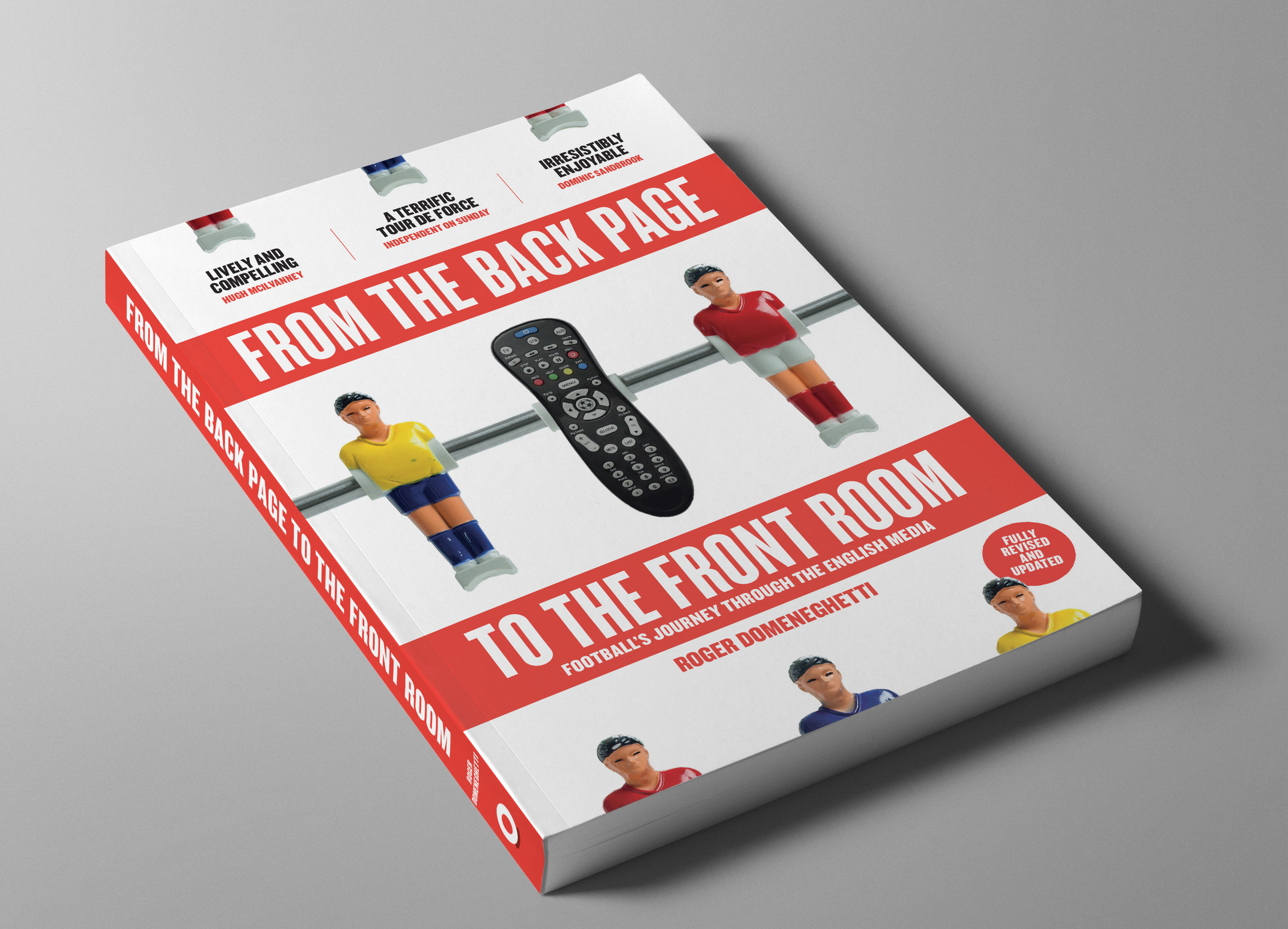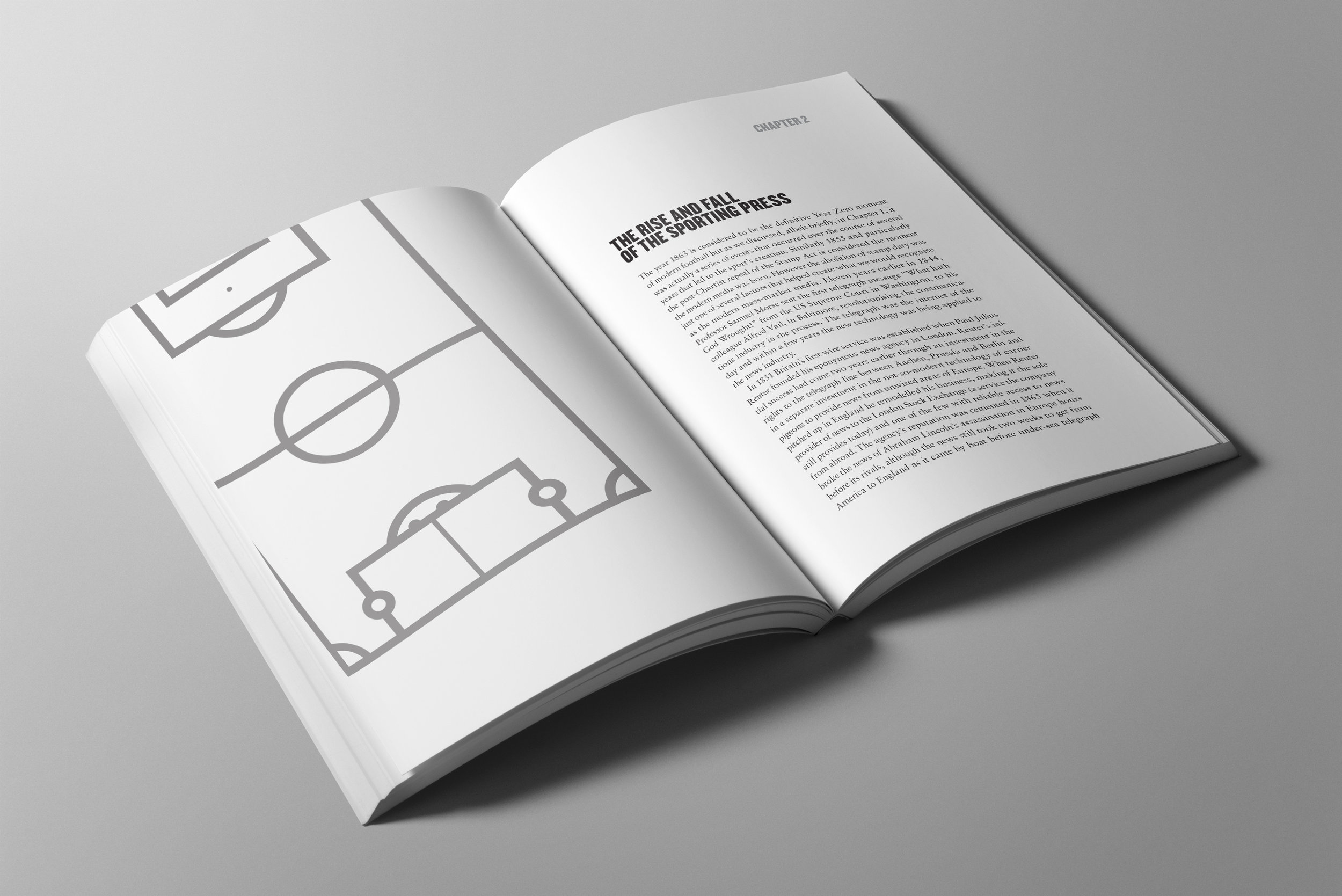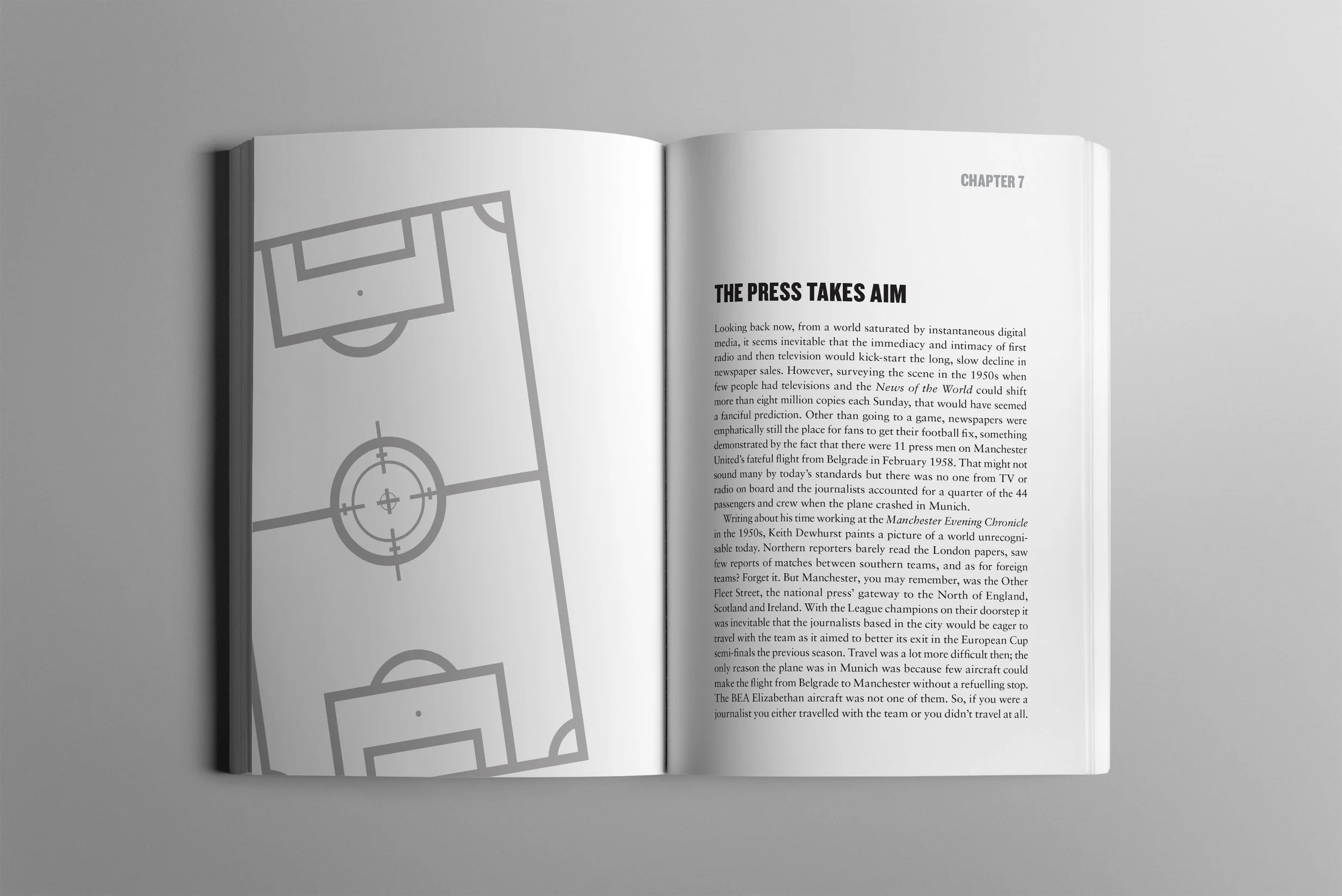- Shop
- From The Back Page To The Front Room: Football's Journey Through The English Media
From The Back Page To The Front Room: Football's Journey Through The English Media



From The Back Page To The Front Room: Football's Journey Through The English Media
Lively and compelling - Hugh McIlvanney
A terrific tour de force - Independent on Sunday
Irresistibly enjoyable - Dominic Sandbrook
Fully redesigned, revised and updated, this beautiful second edition is available now.
Lively and compelling - Hugh McIlvanney
A terrific tour de force - Independent on Sunday
Irresistibly enjoyable - Dominic Sandbrook
Fully redesigned, revised and updated, this beautiful second edition is available now.
Preface
It’s Easter Monday, 2012, and there are 17 minutes left of Newcastle United’s match with Bolton at St James’ Park. What had until that point been a fairly dull, goalless affair sparks into life when the Magpies’ young French star Hatem Ben Arfa receives the ball deep in his own half. Fifteen scintillating seconds later he’s scored and the home side are on their way to three points. While the Toon Army celebrates one of the goals of the season, a wave of panic washes through the press box as those tasked with writing about the game, myself included, aren’t quite sure what they’ve just seen. Had Ben Arfa received the ball from Tim Krul or Yohan Cabaye? Was he in the centre circle or closer to his own goal when he started his run? How many tackles had he ridden? Which Bolton player could have (perhaps should have) brought him down and taken a yellow for the team? We had to wait for the answers. What had caused this panic? Well, due to a power shortage, the TV monitors in the press box weren’t working. Horror of horrors, there were no replays. And there you have it: the media prism through which we experience football has become so omnipotent we almost can’t consume football without it – even newspaper football writers are reliant on replays.
The media dominates our lives. Sport dominates the media. Football dominates the sports media. Think about it: if we’re not watching football on TV from the comfort of our sofa or with our mates in the pub then we’re listening to it on the radio; or we’re talking about it on the radio; or we’re reading about it in newspapers, comics and magazines; or we’re blogging about it; or we’re gambling on it; or we’re collecting football stickers; or we’re tweeting about it; or we’re watching people who write about football talk about what other people who write about football have written about football.
By comparison it’s rare we actually watch the sport live. Even those who do make their way to a ground every Saturday at 3pm (or 12.45pm, or 5.20pm) will most likely then seek an interpretation of what they’ve seen from experts in the media. Almost everyone’s experiences of the teams they don’t support will also be gained vicariously through the media. Such is the power of the media’s coverage of football that in 1990 an Italian operatic aria reached number 2 in the UK singles charts simply because it had been used by the BBC as their signature tune for that summer’s World Cup. The same tournament provided New Order with their only UK number 1. The 1966 World Cup Final is still the country’s most watched TV programme. In the regional newspaper industry, which some feel is in slow, terminal decline, football is one of the few areas of content almost guaranteed to provide a huge hike in sales. The Liverpool Echo was up 46 per cent the day after Liverpool lifted the Champions League in 2005, while sales of the city’s Daily Post doubled. Incidentally on the same day The Times sold an extra 70,000 copies. Coincidence? I don’t think so.
Without the media our perception of football would be totally different. One of the key moments of the reinvention of the game was Paul Gascoigne’s tears in the World Cup semi-final in 1990. Yet it wasn’t the tears themselves but the coverage of them, both live on the night and subsequently through endless reproduction, that was the real catalyst. Few in the stadium would have realised he was crying, fewer still would have realised the cathartic affect his emotional implosion would have on English football. It was an image that represented a human-interest story that enabled the game, through the media, to draw in new fans and which subsequently became embedded in the game’s cultural heritage. It’s easy to forget that Stuart Pearce cried too.
Yet popular histories of the game tend to overlook the huge importance of the media, not just since the 1990s but from its earliest days when it became the sport we could call modern football. There might be a small section here or a chapter there but no sense that the pair have always been inextricably linked. Likewise, popular histories of the media tend to overlook the importance of football despite the fact that the media has always recognised its value as compelling content that could be used to increase its own popularity, as well as providing a consistent spur for technological innovation. Read Andrew Marr’s otherwise excellent history of the press, My Trade, and you’ll find just one mention of sport – when he declares his disinterest in it – and no mention of football at all. He is not alone.
Then there’s academia’s approach to the subject (or lack thereof). Just before his death in 2012, Nick Trujillo, a professor in sport, culture and the media at California State University, wrote that when he started researching sport in the mid-1980s other academics would ask him why he was studying something so ‘frivolous’ and when he would be returning to ‘serious’ work. He would respond sarcastically by asking them what could be more important than sport before pointing out that it is a multi-billion-dollar business which shapes our culture. He would then ask them why they weren’t studying it.
True, he was talking about sport but which is the biggest sport of the lot? Actually, scratch that, which is the biggest business of the lot? As Sergio Cragnotti, the former Lazio chief, has said: “You tell me another product that is bought off the shelf by three billion consumers. Not even Coca-Cola comes close.” Media companies use football to sell their technology – who can forget The Special One rolling around pretending to be James Bond for Samsung? BT are now using live Premier League football as a loss-leader to get people to sign up for their broadband service. ESPN, News Corp, Time Warner, Yahoo and Google have all looked at the English Premier League and considered bidding for the rights to drive customers to their services.
In many ways the history of football media is the history of the media. While the press helped popularise football, football helped make newspapers a mass-market product. Newsreels brought moving footage of the game to the masses and radio brought live coverage into their homes; football was a key selling point of both. Today, if you listen to most regional radio stations on a Saturday or Sunday afternoon you’ll still find their schedules dominated by commentary of the local football team’s game. The UK has two talk radio stations, one devoted entirely to sport, the other a mix of news and sport. Football dominates both. In the weeks following the 9/11 attacks, Radio Five Live interrupted a breaking news story about a possible plane hijack for live coverage of a press conference with England captain David Beckham ahead of a crucial World Cup qualifier with Greece. Now, you might think that demonstrates slightly skewed news values from whoever was making the editorial decisions on the day (and I might be inclined to agree with you) but ask yourself this: when was the last time a football match was interrupted for a breaking news story?
And what of television? In the 1950s it cemented football’s place as the nation’s favourite sport while the game boosted TV-set sales. In the early 1990s with football’s reputation in the gutter and Rupert Murdoch’s News Corporation on the brink of collapse, English football and the media came together once more to support each other in the quest for global domination. Without the money generated through Sky’s coverage of the Premier League, it is highly unlikely that Murdoch would have come to dominate the British media in quite the manner that he has. So here’s another question for you: would the Leveson Inquiry have happened if the Premier League had stuck with ITV way back in 1992?
Along the way the media has helped turn football events into national events. It has even underpinned our obsession with celebrity and if you want to understand the switch from analogue to digital broadcasting, there is no better example than the football media. Beyond all that, the football media has played a crucial role in shaping key aspects of English culture including notions of patriotism and the stereotyping of other nationalities. It has reinforced class divisions as well as the definition of masculinity and the related marginalisation of women and tacit homophobia. Yet despite all this we don’t fully appreciate the importance of the relationship between these two cultural behemoths. Modern football and the modern media are locked together. Born at around the same time, they grew up together, got married young, grew old, renewed their vows and got rich. Sure there have been ups and downs but they’re in it for the long haul; there will be no divorce, it would be too complicated, too messy, and besides, I doubt they could live without each other. This is the story of that life-long love affair.
